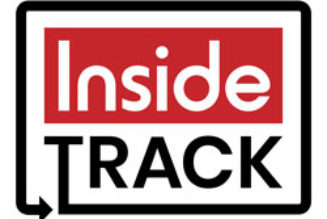Commodities
State to step back from gulf fuel import scheme
Monday August 21 2023

National Treasury and Economic Planning Cabinet Secretary Njuguna Ndung’u addressing participants during the launch of the Budget Preparation process for FY 2024/2025 and the Medium-term at the Kenya School of Monetary Studies, Nairobi on August 18, 2023. PHOTO | BONFACE BOGITA | NMG
Kenya will take a step back from the government-backed fuel import credit scheme negotiated with gulf nations after the International Monetary Fund (IMF) expressed concerns that taxpayers might be exposed to currency-related costs.
Treasury Cabinet Secretary Njuguna Ndung’u said that the government would step back to allow private sector players, including oil marketing companies (OMCs), banks, and credit insurance providers, to run the scheme.
Prof Ndung’u, however, said the government had explained to the IMF staff who visited the country for reviews of credit and funding facilities that the scheme was a trade finance arrangement which had no risks to the Kenyan government.
Read: Kenya strikes cheaper oil deal with Gulf firms
“There is no end game to this (review) because what we will do is that the government will step back and allow the market to work on its own, with those deferred LCs (letters of credit),” Prof Ndungú said, even as he maintained that the government has not been an active participant in the scheme.
“We have gone into several cycles until they (IMF staff) have understood,” said Prof Ndung’u when asked about the review of the credit scheme that is due in December.
The scheme, which was midwifed by the Kenyan government in partnership with governments of the United Arab Emirates and Saudi Arabia, is aimed at easing forex pressures by eliminating the buying of fuel, the country’s single-largest import commodity, in the spot market by postponing the demand for dollars estimated at $500 million monthly.
Under the plan, the Treasury provides comfort letters— which give a level of assurance that an obligation will ultimately be met—to exporters and local banks for fuel purchases from the governments of Saudi Arabia and the United Arab Emirates by designated oil importers.
Although the Treasury has insisted that such letters of comfort cannot amount to government guarantees of private debt, the IMF reckons the government is exposed should foreign exchange (FX) valuation losses not be passed through to consumers.
“After the initial rollout period, staff advised that the import scheme should be reconfigured so that all risks are borne by the private sector,” said the IMF.
According to the IMF, the government is exposed to calls on the national budget should fuel prices at the pump not be adjusted to fully pass through any forex valuation losses to final consumers and to provide access to dollars to cover any potential shortage of foreign currencies in the domestic market.
“Similarly, to reduce risks to the budget, changes in the mechanism for setting pump prices should ensure that fuel price decisions are always aligned with budgeted resources,” added the IMF.
In mid-September, Kenya will be making the first payment for the April consignment, with Prof Ndung’u noting that several vital lessons have been picked up so far.
The IMF says the total amount of outstanding obligations of oil marketing companies to fuel exporters will peak at six months of fuel imports and will then roll over as the first received cargo is settled and a new one is received.
“Based on April 2023 prices, the total obligation incurred is estimated at around $700 million per month for a total of over $4 billion by the end of September 2023,” the IMF said.
Prof Ndung’u told journalists on the sidelines of the launch of the budget-making process for the financial year 2024/25 that the government was not incurring any costs but creating safeguards to make sure that the market works.
“Government comes in to de-risk any form of activity, but because we wanted to make sure that we were dealing with the governments themselves this is why a G-to-G [government-to-government] was a preferred mode,” he said.
“The IMF has realised the same. But when they come in we will get together to see how we will allow the market to work because we still have to watch how the market is working.”
Read: How Kenya plans to cushion gulf oil deal from shilling slide
This is even as the shilling continues to weaken against the dollar, trading at 144.18 by close of business on Friday.
Prof Ndungu insisted that the arrangement has had the desired impact in the foreign exchange market as there is a mad rush for dollars by OMCs every month.
“Because, essentially, you are not seeing everybody rushing every month to get to this bank. We are not seeing that,” he said.
“But we have seen that there is a sense of stability in the market, there is predictability in terms of the foreign exchange and we are not using the spot rates.”
To mitigate some of the foreign exchange risks, Kenya set up an interest-bearing escrow account into which the proceeds from the sale of fuel sourced through the deal are deposited.









